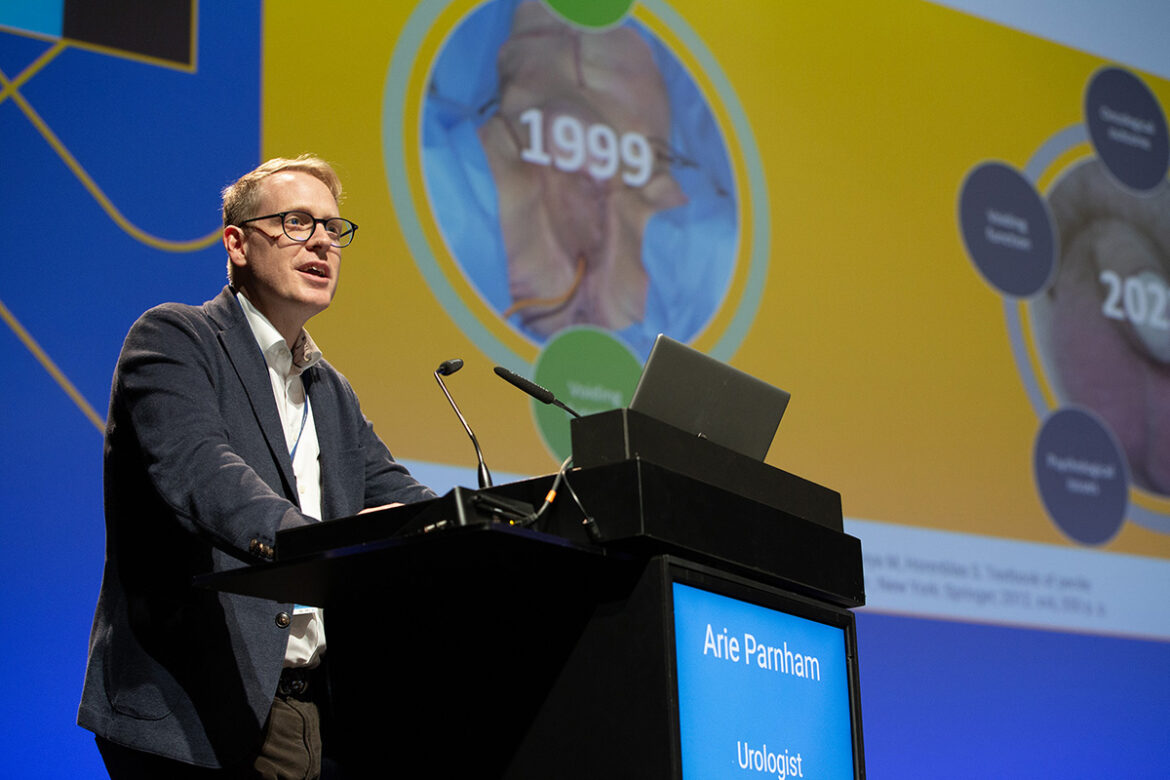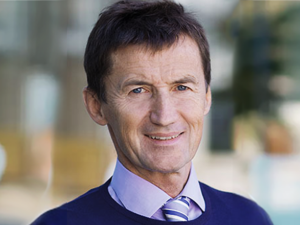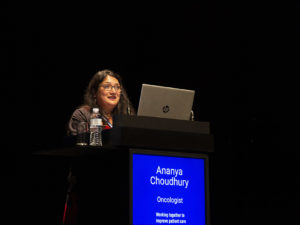Plenary Session 11: New opportunities in genito-urinary tumours kickstarted with the presentation “What can we learn from other tumours?” by medical oncologist Dr. Christophe Massard (FR). His key takeaways included that rare cancers and segmentation of common cancers are the future (and have already begun). Furthermore, there is a need for an increase in molecular screening for patients; additional patients in clinical trials; and more clinical trials with systemic and/or local therapies for patients.
Dr. Massard emphasised the change in clinical trials networks/units, and the addition of a network for rare and common cancers (i.e. in particular, rare molecular alterations). He added that bolstering education and fellowship involves training and empowering young fellows.
Penile preservation
In the following presentation “Strategies for penile preservation in early penile cancer”, urologist Dr. Arie Parnham (GB) stated that glans resurfacing is a good option for low-risk T1 tumours and glansectomy is a favourable option for T1-T2 tumours.
According to Dr. Parnham, brachytherapy is an alternative treatment but with a caveat. He advised, “One needs to gain enough experience to administer it.” Furthermore, organ-sparing is not always the optimal choice. He underscored that discussion of the oncological implications of recurrence is imperative, especially in a high-risk disease. “The data has shown, for example with grade-3 disease or if there’s a chance of a high recurrence rate, a radical treatment option may be the way to go.”
Dr. Parnham has stated that at present, data on how treatment affects functional and quality-of-life outcomes is scarce.
New interventions
On behalf of medical oncologist Dr. Yohann Loriot (FR), Dr. Massard presented the lecture “Novel immune approaches in GU”.
New immune biotechnologies
Several new technologies have been developed such as chimeric antigen receptor [CAR] T cells and bispecific T cell engagers. He listed the five main challenges with CAR-T cells: Cytokine release syndrome; immune effector cell-associated syndrome; manufacturing of drugs; necessitation of chemotherapy preconditioning; and costs.
T cell engagers (TCE) were also discussed and defined as therapeutic proteins that can connect a T cell with a tumour cell. Most TCE have three domains: a domain that binds to a component of the T-cell receptor; a domain that binds to a tumour-associated antigen; and a domain that provides additional functionality such as half-life-extension.
Personalised mRNA vaccines were mentioned as well which involved a resection; the processing and transport of tissues; and the definition of the tumour and normal DNA sequence. Afterward, the neoantigens are predicted and selected. Finally, an autogene cevumeran (individualised neoantigen-encoding mRNA-lipoplex) is custom-manufactured.
New combinations
Antibody-drug conjugates (ADCs) are used for targeted chemotherapy. ADCs have high effective Intratumoural drug concentration, efficiency in cancer-cell killing, and lower systemic distribution and off-target effects.
In addition, new combinations are currently being tested (PD1 + LAG3 inhibitors).
New strategies
Immunotherapy (IO) might be more active in the early stages, and biomarkers might be helpful in developing IO.
Medical oncologist Dr. Elena Castro (ES), radiotherapist Prof. Valerie Fonteyne (BE), and urologist Prof. Morgan Rouprêt (FR) moderated the session.
Watch the full presentations and view the session recap from the EMUC23 Resource Centre.



